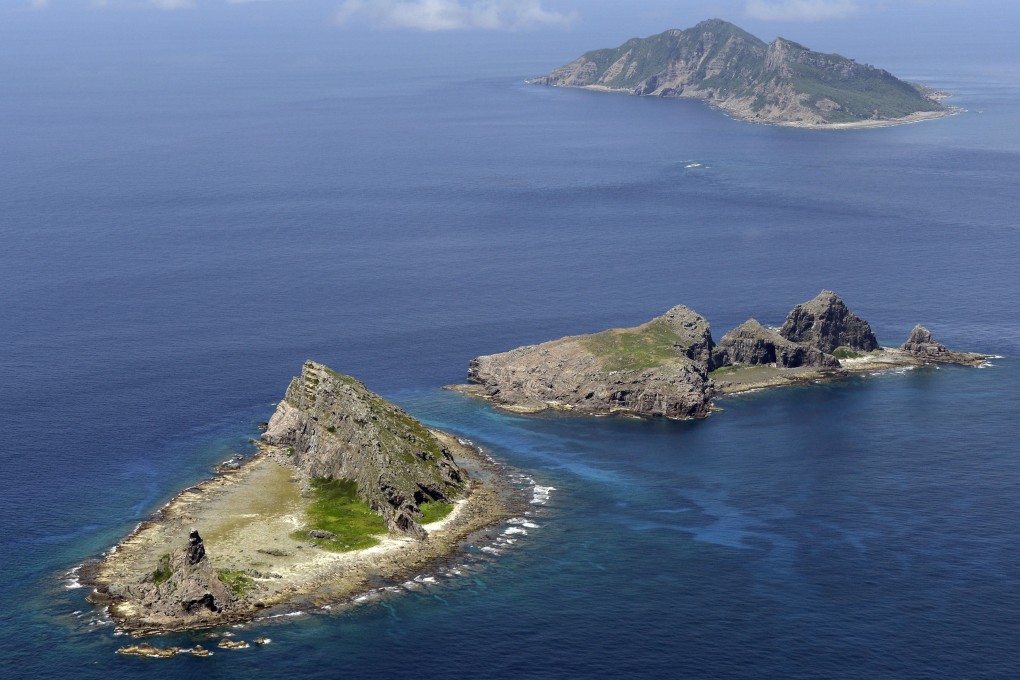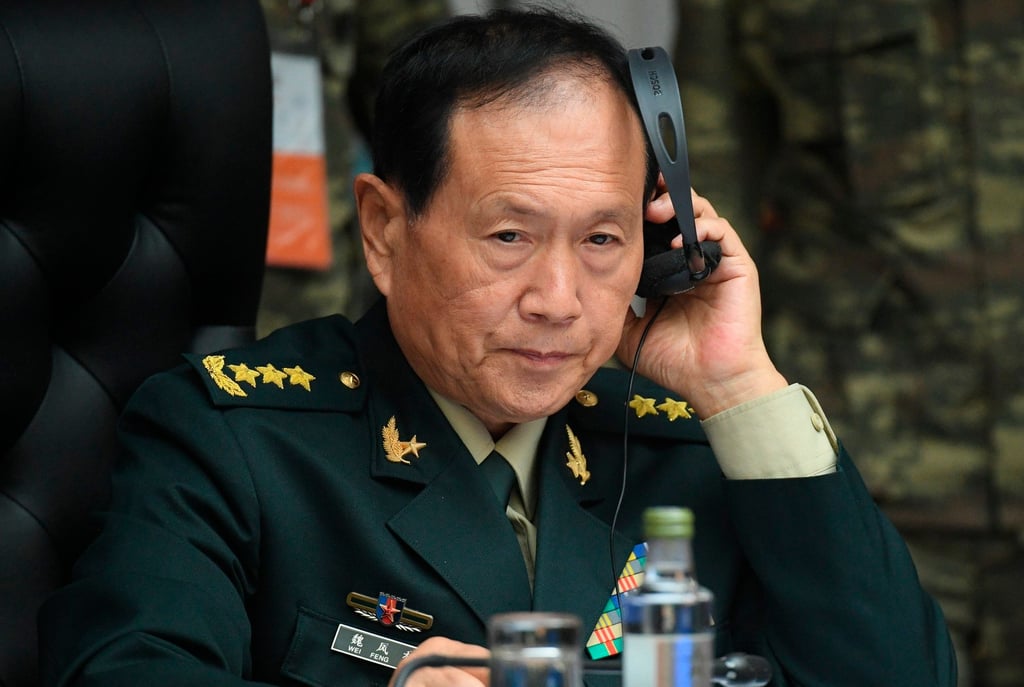Advertisement
China, Japan agree to launch military hotline next year to ease tensions in disputed waters
- Chinese defence chief General Wei Fenghe says Beijing will ‘stand firm’ to protect sovereignty and interests at sea
- Japanese counterpart Nobuo Kishi says Beijing is trying to change the status quo in the East China Sea unilaterally
Reading Time:2 minutes
Why you can trust SCMP
1

China’s defence minister has told his Japanese counterpart that Beijing is determined to protect the nation’s sovereignty and interests in contested waters.
During virtual talks on Monday, Chinese defence chief General Wei Fenghe and Japanese Defence Minister Nobuo Kishi also agreed to launch a military hotline next year to ease tensions in the East China Sea.
The two nations have a long-standing territorial dispute over a group of Japanese-controlled uninhabited islets in the waterway, known as the Diaoyu Islands in China and the Senkakus in Japan. Tensions have been rising in the East China Sea over sovereignty and the size of exclusive economic zones, which determine the right to natural resources there.
Advertisement
Last week, Japan’s cabinet approved a record defence budget of 5.4 trillion yen (US$47.2 billion) for the 2022 financial year, saying it was motivated by China’s military expansion.

“On the issues of the East China Sea and Diaoyu Islands, China will stand firm in protecting its territorial sovereignty and interests at sea,” Wei was quoted as saying in a Chinese defence ministry statement.
Advertisement
He also said both countries should manage the risks together and prevent conflicts from escalating.
Advertisement
Select Voice
Choose your listening speed
Get through articles 2x faster
1.25x
250 WPM
Slow
Average
Fast
1.25x